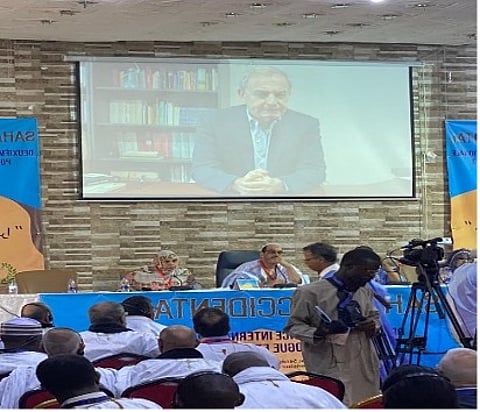Key Interventions Made At The International Conference For Dialogue And Peace In The Sahara
Interventions at the International Conference for Dialogue and Peace in the Sahara highlight the different perspectives and opinions on the Sahrawi question and the importance of finding a peaceful and mutually acceptable solution to end the suffering of the Sahrawi population.
Former President of the Congress and former Spanish Minister of Defense José Bono congratulated the Mouvement des Sahraouis pour la Paix (MSP) for choosing Senegal as the venue for the conference. He emphasized the importance of resolving the Sahara conflict while respecting human rights and the principles of international law.
He also noted that the Sahara is not an occupied territory, according to his observations during a visit to the southern provinces. Bono referred to the autonomy plan proposed by Morocco in 2007, described as serious and realistic by the UN Security Council. He called for dialogue between Morocco, the Polisario, the MSP and Algeria to find a solution to the Saharan question, asserting that the creation of a state in the Sahara represents a threat to regional peace and security.
Rodríguez Zapatero's speech (by video conference) expressed his support for the MSP and its project to find a peaceful solution to the Sahara conflict. He stressed the importance of reconciliation and dialogue in resolving the Saharawi problem, and encouraged respect for the rights of the Saharawi people, including their right to self-government. He also praised the role of Haj Ahmed and expressed confidence that the MSP's ideas would eventually be recognized by official bodies and countries involved in the Saharawi question.
Former President of Burundi Domitien Ndayizeye thanked the MSP for the invitation to the conference. He noted the long history of the Sahrawi question in Africa and stressed the need for negotiation and direct consultation between the parties to resolve the conflict. He also mentioned a third party benefiting from the conflict, at the expense of the Saharawis.
Former Spanish Minister of Justice and current MEP Juan Fernando Aguilar praised the MSP and the African Strategic Intelligence Center for Peace for their work. He expressed his support for the search for a peaceful solution to the Sahrawi conflict and stressed the importance of the autonomy plan proposed by Morocco. He urged Saharawis in the southern provinces and the Tindouf camps to work together to achieve peace, and stressed the crucial role of women in Saharawi society.
Argentine political scientist Adalberto Carlos Agozino highlighted the emergence of the MSP as an opposition to the Polisario and praised its commitment to peace and negotiations. He criticized Polisario's intransigence and called for support from the international community for a compromise solution to the conflict. He stressed the importance of respecting the interests and needs of all Saharawis to achieve lasting peace.

